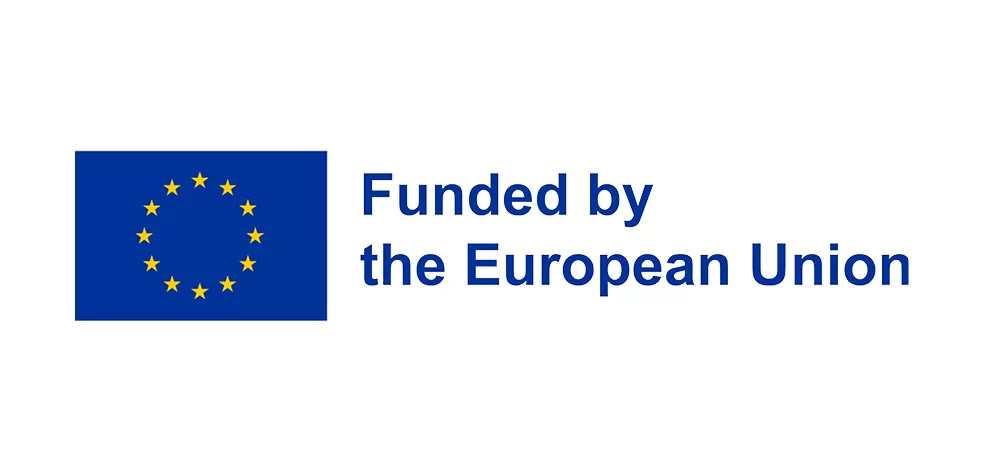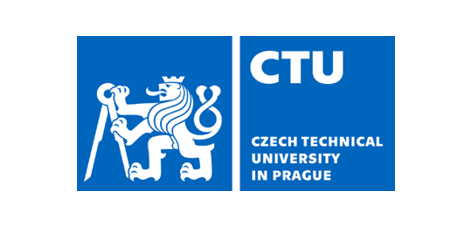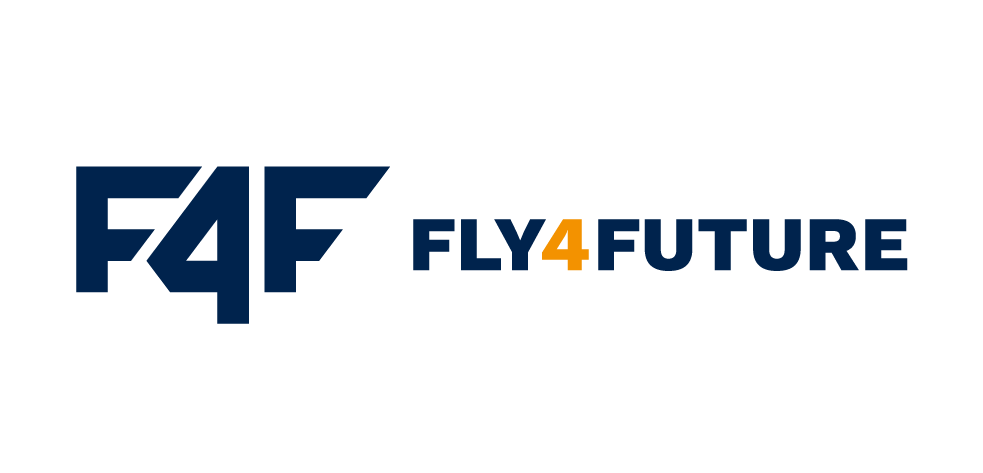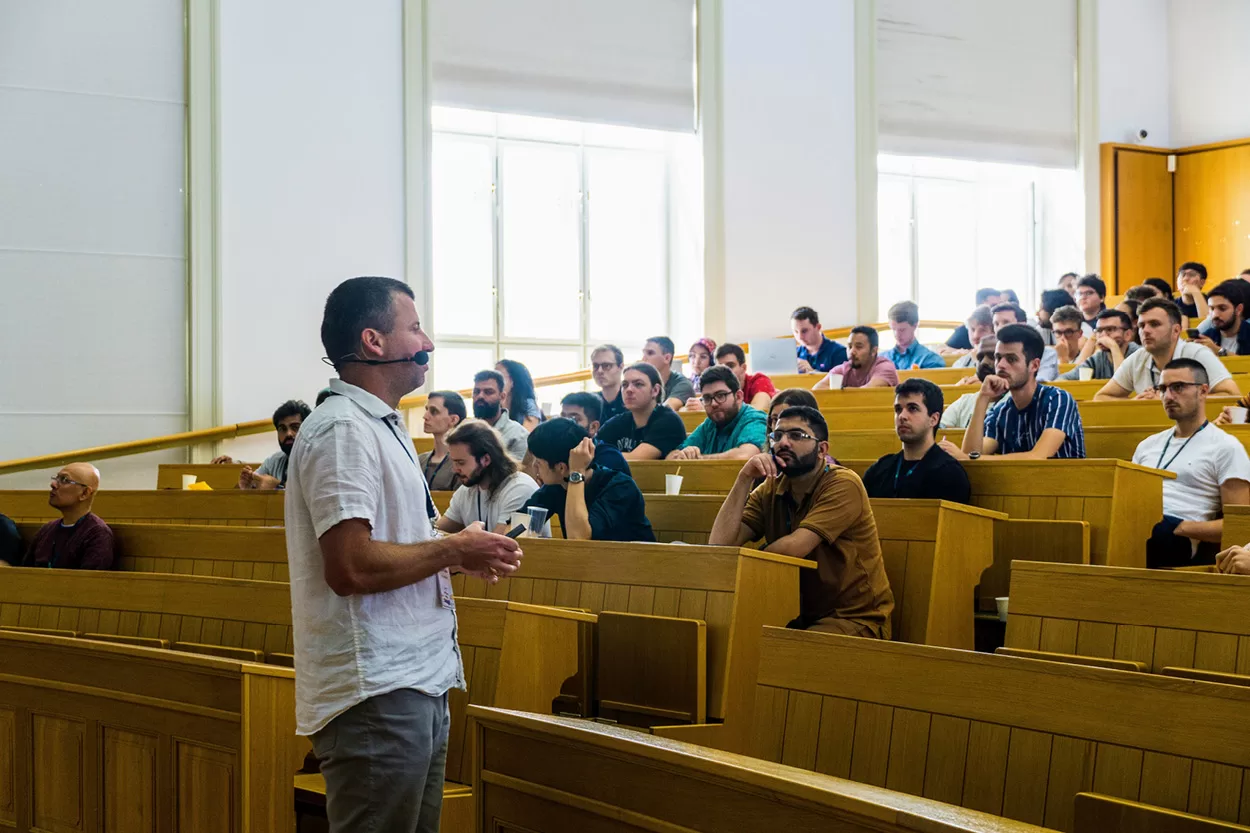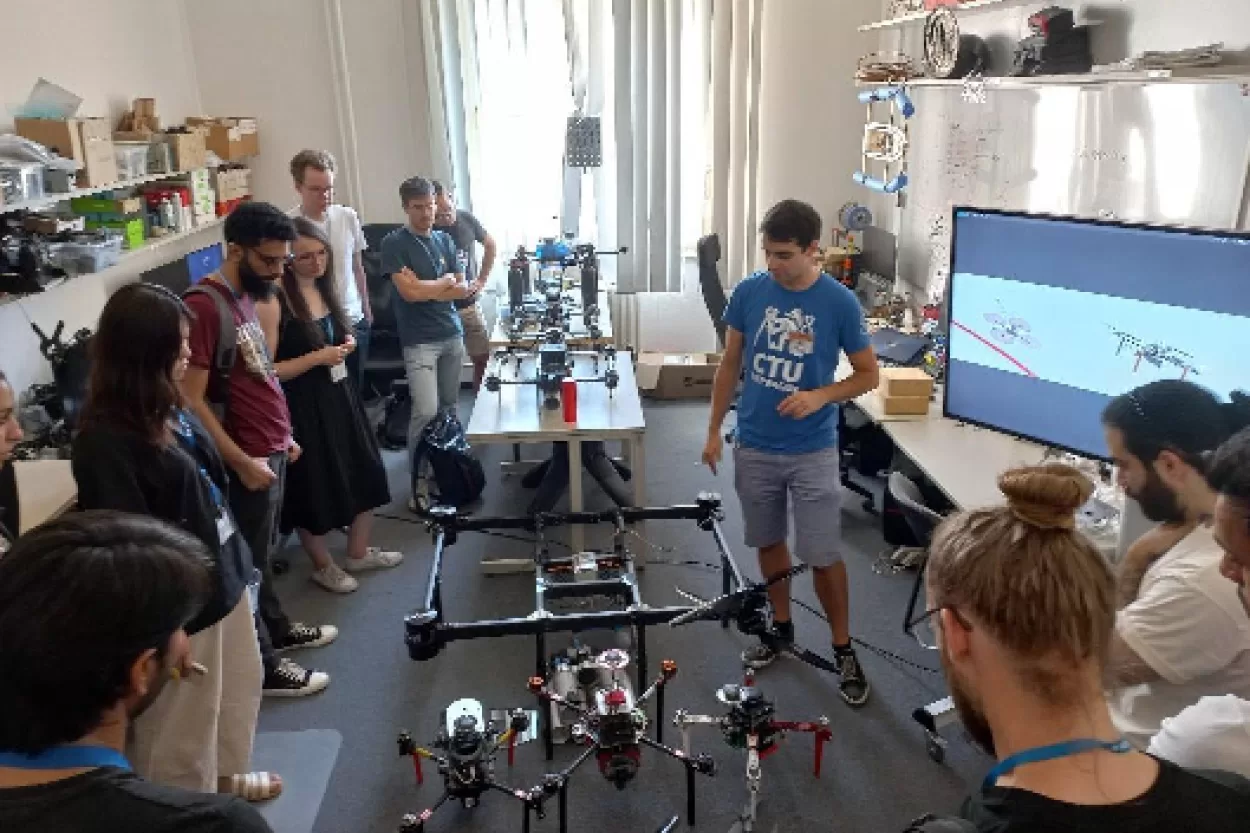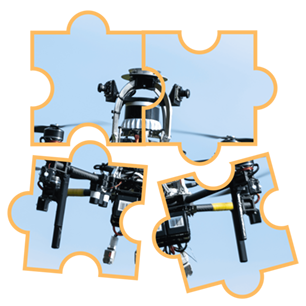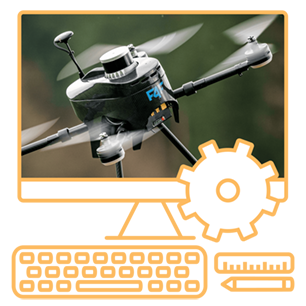AeroSTREAM Project
AeroSTREAM Summer School 2023
July 3-6, 2024, Prague, Czech Republic

About
AeroSTREAM Summer School 2023
AeroSTREAM Summer School 2023 was held on July 3 – 6, 2023 in Prague, Czech Republic.
Attendees joined the whole program in person at the Summer School’s venue or remotly through online lectures.
In detail
Practical Information
Venue
AeroSTREAM Summer School 2023 took place at the campus of Czech Technical University in Prague located at Karlovo Náměstí 13, 120 00 Prague 2, building E.
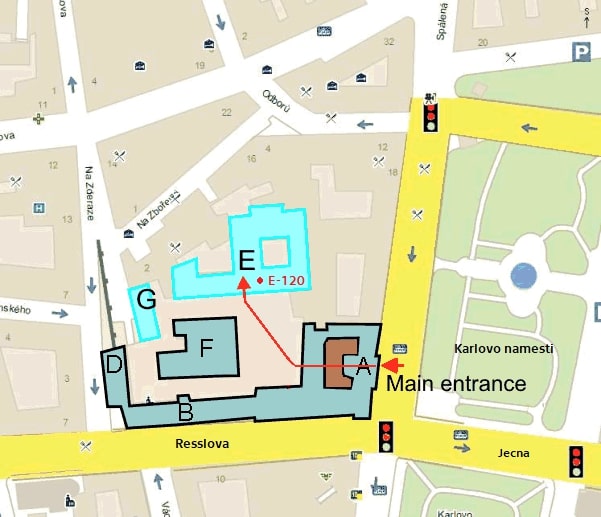
Program
- 08:00-08:45 – Registration (for later coming possible during the day)
- 09:00-09:30 – Martin Saska – welcome and organizational details
- 09:30-10:30 – Zdeněk Hurák – Distributed control: applications in vehicular platooning and (micro-)manipulation
- 10:30-11:00 – Coffee Break
- 11:00-12:30 – Martin Saska – Research of groups of aerial robots at CTU in Prague
- 12:30-13:30 – Lunch
- 13:30-15:00 – Tomáš Báča – Introduction into MRS system in ROS
- 15:00-16:00 – Filip Novák/Parakh M. Gupta/Tomáš Báča – Practical seminar tasks introduction
- 16:00-16:30 – Coffee break
- 16:30-17:00 – Jan Bednář/Daniel Heřt – Drone Platform Overview
- 17:00-19:00 – Workshop (Practicals in group)
- 19:00-21:00 – Social program: Welcome drink
- 08:45-09:00 – Registration (for later coming)
- 09:00-10:30 – Javier Alonso Mora – Motion Planning among Decision-Making Agents: modeling uncertainty and interaction
- 10:30-11:00 – Coffee break
- 11:00-12:30 – Stephan Weiss – On Estimator Consistency: From Multi-Sensor Fusion to Collaborative State Estimation
- 12:30-13:30 – Lunch
- 13:30-15:00 – Practical in PC lab (simulations in Gazebo)
- 15:00-16:00 – Dario Floreano – Aerial Swarms that Interact with the Environment, Robots, and Humans (Part I)
- 16:00-16:30 – Coffee break
- 16:30-17:30 – Dario Floreano – Aerial Swarms that Interact with the Environment, Robots, and Humans (Part II)
- 17:30-18:15 – Short presentations of students (Part I)
- 18:30-20:00 – Guided tour in Prague’s Old Town
- 08:45-09:00 – Registration (for later coming)
- 09:00-10:30 – Hector García de Marina – Resilient source seeking with robot swarms (Part I)
- 10:30-11:00 – Coffee break
- 11:00-12:15 – Hector García de Marina – Resilient source seeking with robot swarms (Part II)
- 12:15-13:15 – Lunch
- 13:15-15:15 – Practical in PC lab (simulations in Gazebo)
- 15:15-15:45 – Coffee break
- 15:45-18:00 – Short presentations of students (Part II)
- 19:00-22:00 – Banquet
- 08:45-09:00 – Registration (for later coming)
- 09:00-10:30 – Eduardo Montijano – Perception and Control of Non-Cooperative Agents with Teams of Robots
- 10:30-11:00 – Coffee break
- 11:00-12:30 – Andreagiovanni Reina – Collective decision-making in robot swarms
- 12:30-13:30 – Lunch
- 13:30-16:30 – Practical in PC lab (simulations in Gazebo) + Lab Tour
Introducing
Lecturers
Learn about the experts in the field of Multi-Robot Systems who gave lectures and shared their knowledge, ideas and experience.
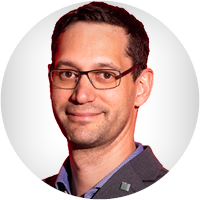
Stephan Weiss
Professor of Robotics, head of the Control of Networked Systems Group
Stephan Weiss is Full Professor of Robotics, head of the Control of Networked Systems Group, and deputy head of the Institute of Smart Systems Technologies at the University of Klagenfurt (AAU) in Austria. He received both his MSc in Electrical Engineering and Information Technology in 2008 and his Ph.D. in 2012 from the Eidgenössische Technische Hochschule (ETH) Zurich, Switzerland. His Ph.D. Thesis on “Vision Based Navigation for Micro Helicopters” first enabled GPS independent navigation of small UAVs using on-board visual-inertial state estimation. His algorithms were the key to enable the Mars Helicopter Scout project (now called Ingenuity) and corresponding proof-of-concept technology demonstration at NASA’s Jet Propulsion Laboratory where he worked from 2012 until 2015 as Research Technologist in the Mobility and Robotic Systems Section and where he lectured at the California Institute of Technology.
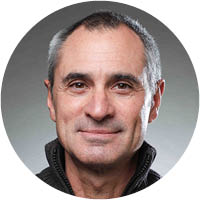
Dario Floreano
Professor and director of the Laboratory of Intelligent Systems, EPFL
Dario Floreano is Professor of Intelligent Systems at EPFL. He was the Director of the Institute of Systems Engineering at the same institution from 2003 to 2007, and the Founding Director of the Swiss National Center of Competence in Robotics from 2010 to 2022, which played a substantial role in elevating the Swiss robotics community at the forefront of international research, education, technology transfer, outreach, and equal opportunities.
Dario received a Master in Cognitive Science from University of Trieste, a Master in Neural Computation from University of Stirling, and a PhD in Artificial Intelligence and Robotics from University of Trieste, before taking a postdoctoral fellowship at EPFL in 1996, a research fellowship at Sony Computer Science Laboratory in Tokyo in 1998, and visiting professorships at the Caltech Jet Propulsion Laboratory and at Harvard University in 2014, and at Osaka University in 2015.
Dario co-authored five books and several hundred peer-reviewed publications, and co-founded or helped to spin out several robotics companies and a communication platform. He is an IEEE Fellow and ELLIS Fellow, is on the editorial board of Science Robotics, and is, or has been, on the advisory board of several national and international organizations. His research aims at making robots more intelligent, adaptive, and life-like. He has made pioneering contributions to the field of Evolutionary Robotics, Aerial Robotics, and Soft Robotics.
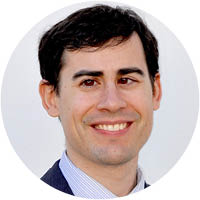
Javier Alonso-Mora
Professor of Cognitive Robotics, Autonomous Multi-Robots Lab, Delft University of Technology
Dr. Javier Alonso-Mora is an Associate Professor at the Cognitive Robotics department of the Delft University of Technology, where he leads the Autonomous Multi-robots Laboratory. He is a Principal Investigator at the Amsterdam Institute for Advanced Metropolitan Solutions ( AMS Institute) and co-founder of The Routing Company. He is actively involved in the Delft robotics ecosystem, including the Robotics Institute, the Transportation Institute and Robovalley.
Before joining TU Delft, Dr. Alonso-Mora was a Postdoctoral Associate at the Computer Science and Artificial Intelligence Lab (CSAIL) of the Massachusetts Institute of Technology (MIT). He received his Ph.D. degree in robotics from ETH Zurich, where he worked in the Autonomous Systems Lab, and in partnership with Disney Research Zurich. Dr. Alonso-Mora holds a Diploma in Engineering and a Diploma in Mathematics from the Technical University of Barcelona ( UPC), where he was part of the Interdisciplinary Higher Education Centre (CFIS) and the Robotics Institute (IRI).
His main research interest is in navigation, motion planning and control of autonomous mobile robots, with a special emphasis on multi-robot systems, on-demand transportation and robots that interact with other robots and humans in dynamic and uncertain environments. He is the recipient of multiple prizes and grants, including an ERC Starting Grant (2021), the ICRA Best Paper Award on Multi-robot Systems (2019), an Amazon Research Award (2019) and a talent scheme VENI award from the Netherlands Organisation for Scientific Research (2017).

Eduardo Montijano
Professor of Computer Science and Systems Engineering, RoPeRT, Universidad de Zaragoza
Eduardo Montijano is an Associate Professor in the Departamento de Informática e Ingeniería de Sistemas at Universidad de Zaragoza in Spain. He received the M.Sc. and Ph.D. degrees from the Universidad de Zaragoza, Spain, in 2008 and 2012 respectively. He was a faculty member at Centro Universitario de la Defensa, Zaragoza, between 2012 and 2016.
His research interests are in the field of distributed algorithms applied to cooperative control and perception of multi-robot systems. His Ph.D. obtained the extraordinary award of the Universidad de Zaragoza in the 2012-2013 academic year.
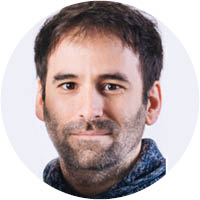
Héctor García de Marina
Senior Researcher, University of Granada
Héctor García de Marina is currently a research fellow under the program Ramón y Cajal at the University of Granada, where he investigates robot swarms and multi-agent systems. He serves as an associate editor for the IEEE Transactions on Robotics.
Héctor defended his PhD thesis in Distributed formation control algorithms for autonomous robots at the University of Groningen, Netherlands in 2016. From 2016 and until the end of 2017, Héctor held a postdoctoral position at the École Nationale de l’Aviation Civile in Toulouse, where he focused his research on swarms of unmanned aerial vehicles while contributing to Paparazzi, the open-source autopilot.
From February 2018 until March 2020, Héctor was an Assistant professor in the Unmanned Aerial Systems Center at the University of Southern Denmark in Odense. From April 2020 until April 2022, he was a research fellow Atracción de Talento co-funded by the Autonomous Community of Madrid and the University Complutense of Madrid.

Zdeněk Hurák
Head of AA4CC Group, FEE CTU
Zdeněk Hurák is an associate professor and a deputy head of the the Department of Control Engineering at Faculty of Electrical Engineering, CTU. He is the head of the Advanced Algorithms for Control and Communications (AA4CC) research group.
He received his Ph.D. degree in cybernetics and robotics at Czech Technical University in Prague in 2004 for his research in l1 optimal control. Dr. Hurák was a visiting researcher at TU Eindhoven, The Netherlands, for 8 months in 2008. He was awarded Fulbright’s scholarship for a visiting position at University of California, Santa Barbara, for 7 months in 2014. Currently he gives graduate lectures on optimal and robust control and undergraduate lectures on modeling and simulation of dynamic systems. He supervises students, and manages research projects with academic and industrial partners.
His research interests include numerical algorithms for optimal, robust and distributed control, and applications of advanced control schemes in electromechanical systems, (micro)robotics & microfluidics, and even intelligent transportation.
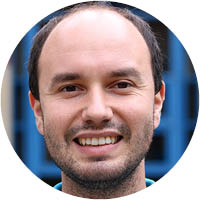
Andreagiovanni Reina
Senior Researcher, IRIDIA, Université Libre de Bruxelles
Andreagiovanni Reina is currently a FNRS Research Fellow in Collective Behaviour at the IRIDIA, the Institute for Interdisciplinary Studies on Artificial Intelligence, of the Université Libre de Bruxelles in Belgium.
At the present, Andreagiovanni is working on the FNRS project HECOROS—Heterogeneity for Cost-Effective Robot Swarms—with Prof. Marco Dorigo. He is also a Visiting Fellow of the the University of Sheffield, in the UK, as part of the Natural Robotics Lab led by Roderich Gross. His research interests are collective decision making, swarm robotics and distributed cognition.
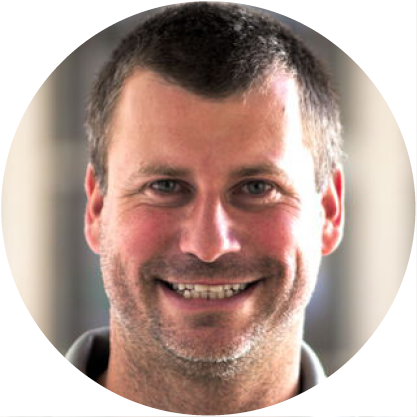
Martin Saska
Head of the Multi-Robot Systems Group, FEE CTU
Martin Saska is the founder and head of Multi-robot Systems lab at Czech Technical University in Prague (https://mrs.felk.cvut.cz/) and a co-founder of The Center for Robotics and Autonomous Systems with more than 70 researchers cooperating in robotics (https://robotics.fel.cvut.cz/cras/).
Martin received his Ph.D. degree at University of Wuerzburg, Germany, within the PhD program of Elite Network of Bavaria, 2009. He was a visiting scholar at University of Illinois at Urbana-Champaign, USA in 2008, and at University of Pennsylvania, USA in 2012, 2014 and 2016, where he worked with Vijay Kumar’s group within GRASP lab.
Martin is an author or co-author of >150 publications in peer-reviewed conferences with multiple best paper awards and more >50 publications in impacted journals, including IJRR, AURO, JFR, ASC, EJC, with >5500 citations indexed by Scholar and H-index 41. His team won multiple robotic challenges in MBZIRC 2017, MBZIRC 2020 and DARPA SubT competitions.
Visit
All AeroSTREAM Summer Schools
Explore
What We Do
Custom Drones
We custom-build ready-to-fly fully autonomous drones that can be adjusted for any application and industry.
Development & Prototyping
We design and develop advanced autonomous aerial systems to meet the particular needs of our individual clients.
Research Projects
We participate in many projects in various fields financed by the EU and Czech Republic, as well as private research institutions.

